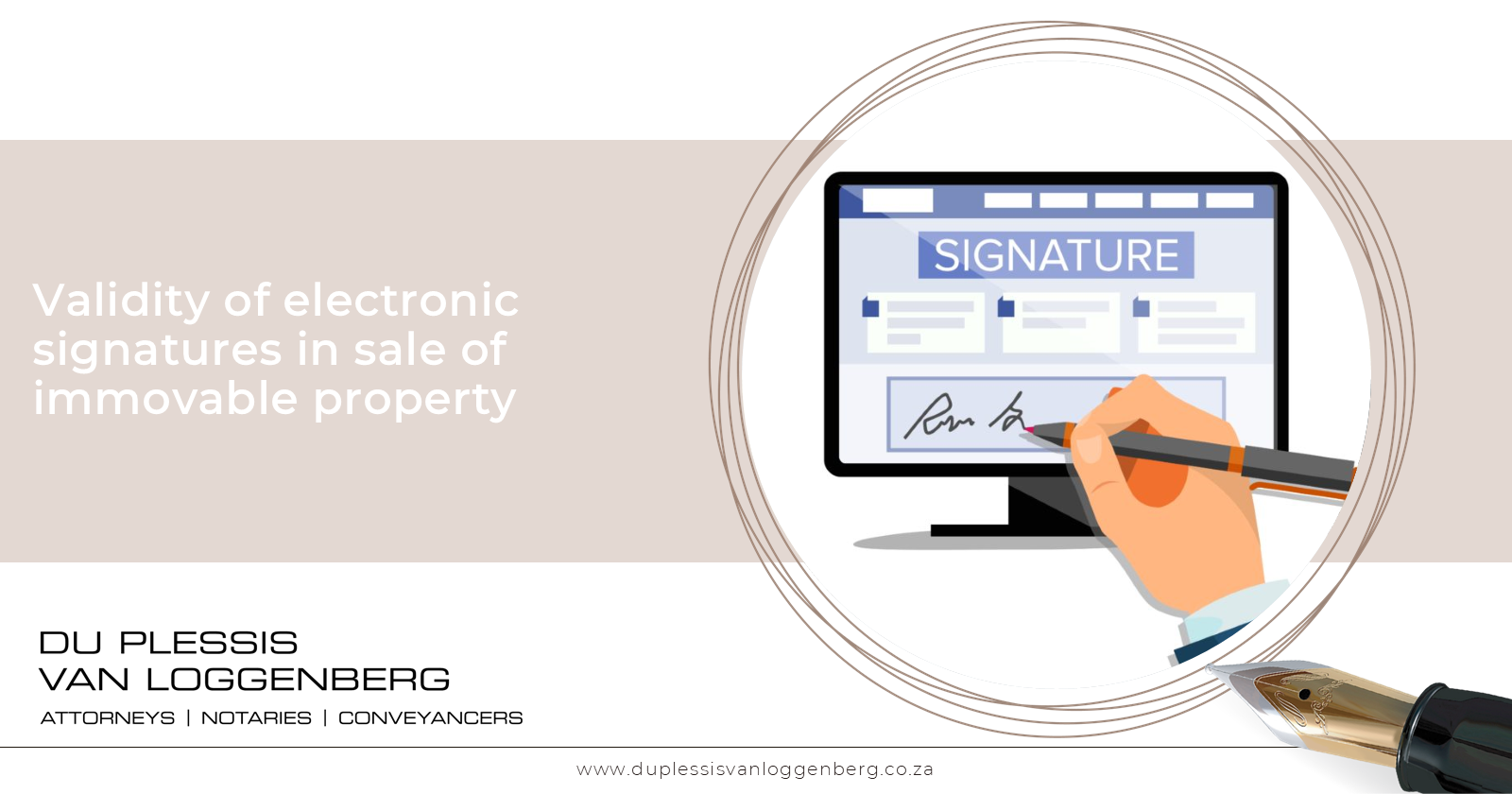
Validity of electronic signatures in sale of immovable property
23/08/2024 - By Tiffany MareElectronic signatures have become the norm in our new digital error, streamlining processes and concluding transactions in our day to day lives with more convenience. The question however arises whether a contract relating to the sale of immovable property would be valid if signed by way of an electronic signature.
What is an electronic signature?
In South Africa, electronic signatures are governed by the Electronic Communications and Transactions Act 25 of 2002 (ECTA), which provides that an electronic signature is data attached to, incorporated in, or logically associated with, other data, and which is intended by the user to serve as a signature.
The Electronic Communications and Transactions Act 25 of 2002 (ECTA)
Section 13 of the ECTA provides us with legal recognition of electrically signed documents, Section 4(4), Schedule 2 however prohibits electronic signatures when it comes to signing agreements relating to alienation of immovable property.
Schedule 2 relating to Section 4(4) of the ECTA
In terms of Schedule 2 relating to Section 4(4) of the ECTA, exceptions where agreements may NOT be concluded by electronic signatures are as follows;
 Agreements for alienation of immovable property;
 Agreement for a long-term lease of immovable property exceeding 20 years;
 Execution, retention and presentation of a will or codicil;
 Execution of a bill of exchange (such as a cheque);
We therefore conclude that electronic signatures for the sale of immovable property are excluded and therefore cannot be applied to conclude a valid contract.
Section 2(1) of the Alienation of Land Act 68 of 1981 (ALA)
One of the formalities provided for in Section 2(1) of the Alienation of Land Act 68 of 1981 (“ALAâ€) states that valid alienation of land must be in a written agreement, signed by the parties who have authority to sign such agreement.
Conclusion
The ECTA and ALA explicitly state that electronic signatures cannot be used for an agreement for the alienation of immovable property. Consequently, there is little to no room for doubt or statutory interpretation on the matter. Therefore, even though electronic signatures have become the norm in our everyday transactions, it is best to conduct sale agreements pertaining to immovable property by hand on paper in wet ink to avoid any legal complications regarding the validity thereof.
